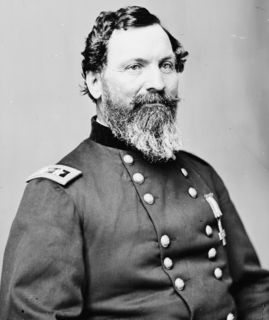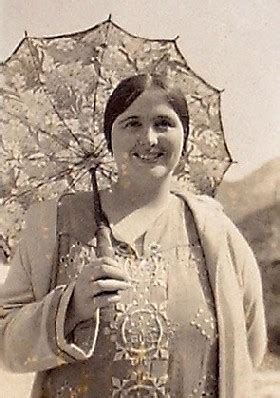A Quote by Theresa Villiers
Why, Sir, when I have anything to invent, I never trouble my head about it, as other men do; but presently turn over this Book, and there I have, at one view, all that Perseus , Montaigne , Seneca 's Tragedies , Horace , Juvenal , Claudian, Pliny , Plutarch 's lives , and the rest, have ever thought upon this subject: and so, in a trice, by leaving out a few words, or putting in others of my own, the business is done.
Related Quotes
We stand in need of such reflections to comfort us for the loss of some illustrious characters, which in our eyes might have seemed the most worthy of the heavenly present. The names of Seneca, of the elder and the younger Pliny, of Tacitus, of Plutarch, of Galen, of the slave Epictetus, and of the emperor Marcus Antoninus, adorn the age in which they flourished, and exalt the dignity of human natures.
Worry is a complete circle of inefficient thought whirling about a pivot of fear. To avoid it, consider whether the problem in hand is your business. If it is not, turn to something that is. If it is your business, decide if it is your business now. If so, decide what is best to be done about it. If you know, get busy. If you don't know, find out promptly. Do these things; then rest your case on the determination that, no matter how hard things may turn out to be, you will amek the best of them - and more than that no man can do. Dr. Austen Fox Riggs
It requires something more than personal experience to gain a philosophy or point of view from any specific event. It is the quality of our response to the event and our capacity to enter into the lives of others that help us to make their lives and experiences our own. In my own case my convictions have derived and developed from events in the lives of others as well as from my own experience. What I have seen meted out to others by authority and repression, economic and political, transcends anything I myself may have endured.
Laziness and cowardice explain why so many men. . . remain under a life-long tutelage and why it is so easy for some men to set themselves up as the guardians of all the rest. . . If I have a book which understands for me, a pastor who has a conscience for me, a doctor who decides my diet, I need not trouble myself. If I am willing to pay, I need not think. Others will do it for me.
The word crap is actually another word that's very, very old. It was taken over from 17th century England by the pilgrim fathers and Americans were talking about things being crap in the 17th and 18th centuries. What Sir Thomas Crapper – complete coincidence – does is not invent the flushing toilet, as many, many people believe, but was a great promoter for it. He ran a business marketing other people's products and that's why his name was on them. When the American soldiers came over in the First World War, they all thought it was hilarious that it said 'crapper' on them.
THAT Perseus always won. That's why my momhad named me after him, even if he was son of Zeus ann I was son of Posidon. The original Perseus was one of the only heros in the greek myths who got a happy ending. The others died-betrayed, mauled, mutilated, poisoned, or cursed by the gods. My mom hoped i would inherit Perseus's luck. Judging by how my life was going so far, i wasn't too optimistic.
If you invent two or three people and turn them loose in your manuscript, something is bound to happen to them -- you can't help it; and then it will take you the rest of the book to get them out of the natural consequences of that occurrence, and so first thing you know, there's your book all finished up and never cost you an idea.
Do not go out of your way to do good whenever it comes your way. Men who make a business of doing good to others are apt to hate others in the same occupation. Simply be filled with the thought of good, and it will radiate you do not have to bother about it, any more than you need trouble about your digestion.
Bear with me on this, Evanlyn. I know you're anxious about Horace." WIll was a little puzzled by Halt's words. "No more anxious than the rest of us, surely," he said. Halt turned away and raised his eyebrows as his gaze met Selethen's. Sometimes, he thought, his former apprentice could be remarkably slow on the uptake. He saw the Arridi's slow nod of understanding. ~Halt & Will about Evanlyn and Horace
Boswell: But, Sir is it not somewhat singular that you should happen to have Cocker's Arithmetic about you on your journey? Dr. Johnson: Why, Sir if you are to have but one book with you upon a journey, let it be a book of science. When you read through a book of entertainment, you know it, and it can do no more for you; but a book of science is inexhaustible.
I shall stick to our vow: never, never under any circumstances, to say anything unbecoming of the other...The trouble, of course, is that most successful men are prone to some form of vanity. There comes a stage in their lives when they consider it permissible to be egotistic and to brag to the public at large about their unique achievements.
Dropping of the atomic bomb was the main subject of conversation for many years and so people had very strong feelings about it on both sides and people who thought it was the greatest thing they'd ever done and people who thought it was just an unpleasant job and people who thought they should have never done it at all, so there were opinions of all kinds.
To judge sins is the business of one who is sinless, but who is sinless except God? Who ever thinks about the multitude of his own sins in his heart never wants to make the sins of others a topic of conversation. To judge a man who has gone astray is a sign of pride, and God resists the proud. On the other hand, one who every hour prepares himself to give answer for his own sins will not quickly lift up his head to examine the mistakes of others.
I used to do miserably in English literature, which I thought was a sign of moral turpitude. As I look back on it, I think it was rather to my credit. The notion of actually putting writers' words into other words is quite ridiculous because why bother if writers mean what they mean, and if they don't, why read them? There is, I suppose, a case for studying literary works in depth, but I don't quite know what 'in depth' means unless you read a paragraph over and over again.
The obvious and fair solution to the housework problem is to let men do the housework for, say, the next six thousand years, to even things up. The trouble is that men, over the years, have developed an inflated notion of the importance of everything they do, so that before long they would turn housework into just as much of a charade as business is now. They would hire secretaries and buy computers and fly off to housework conferences in Bermuda, but they'd never clean anything.


































